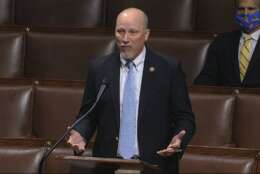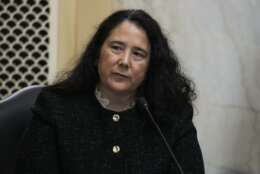Merit Systems Protection Board
-
Sometimes working along can be downright pleasant. Sometimes you're all by yourself pursuing injustice.
August 19, 2022 -
A new bill introduced in the House of Representatives, titled the Public Service Reform Act, is not about public service and is certainly not reform. Rather than addressing accountability or hiring and pay challenges, the bill would make all federal workers at-will employees. The result would be a civil service that is little more than two million political appointees.
August 09, 2022 -
The Preventing a Patronage System Act would stop any federal job from reclassification outside of merit system principles.
August 02, 2022 -
Republican lawmakers are once again making a push that would allow the government to fire bureaucrats more easily.
July 29, 2022 -
MSPB has made decisions on 200 cases after meeting quorum in March. The board now plans to ramp up after reaching its first three-member panel in seven years.
June 20, 2022 -
The Office of Special Counsel has had a busy season. It's dealt with a landmark Hatch Act violation case that sent one federal employee home without pay for six months.
May 26, 2022 -
In today's Federal Newscast, the Postal Service settles another lawsuit stemming from the 2020 presidential election.
May 16, 2022 -
The rebuilding ot the Merit Systems Protection Board represents a commitment not only to federal employees but to the law itself.
April 07, 2022 -
From a supreme court confirmation vote to Russian misbehavior, the House and Senate have a lot to do in the coming week. And there's considerable time pressure to get it done.
April 04, 2022 -
The Small Business Administration is planning to shed the equivalent of more than 3,400 full-time employees as part of its budget request for fiscal 2023.
March 30, 2022 -
After two years of total vacancy, the Merit Systems Protection Board now has two of its three members, enough to make decisions that stick.
March 17, 2022 -
The Senior Executives Association, which represents the government's highest ranking career officials, is especially glad the Merit Systems Protection Board has a quorum of two members. The Senate confirmed them a couple of weeks ago, ending five years without a quorum.
March 17, 2022 -
Discussion about the federal workforce rarely go three minutes, before someone laments the need to get young people into government. Yet three quarters of the federal workforce is over 40, a much higher percentage than in the private sector. So it may be no surprise that age discrimination complaints in government are more common than in the private sector.
March 04, 2022 -
The newly seated board has a backlog of cases, but also some aids to help them get through it.
March 04, 2022 -
Federal employees looking to appeal an adverse personnel action might not have to wait on the Merit Systems Protection Board much longer. The Senate ends a five-year streak in which the board lacked a quorum.
March 03, 2022












